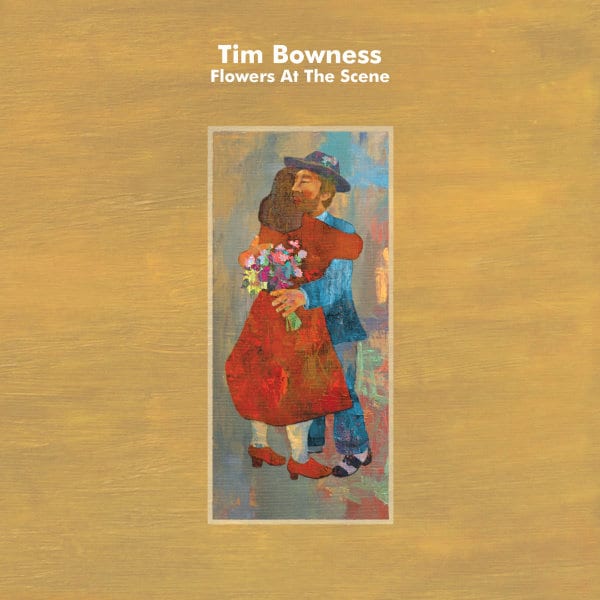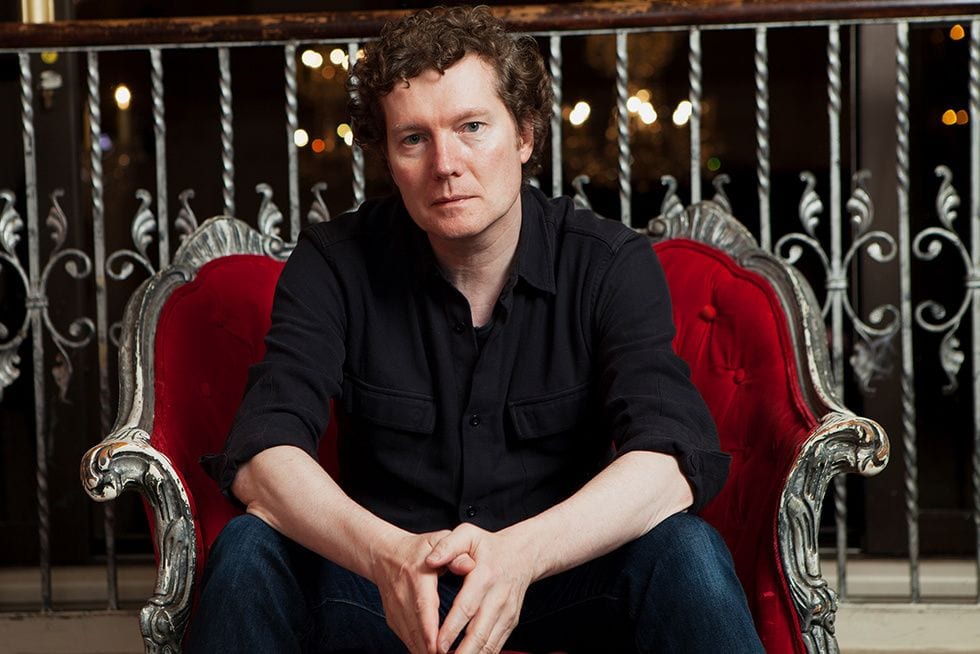
Now over 30 years into his career as a musician, Tim Bowness claims several distinct traits as a lyricist. His poetic style, initially developed as one half of the duo No-Man (with Steven Wilson of Porcupine Tree fame), frequently draws on isolated, hyper-detailed images to paint a vivid picture in a brief amount of space. (“You walk upon the dirt and chocolate wrappers / You’re leaving me behind you” on No-Man’s “Things Change”) Bowness seems to have at his disposal a bevy vocative phrases with just the right amount of interpretive vagueness – “the hollow thump of life that has no taste” is a favorite of mine. Although vivid enough on the page, Bowness’ lyrics come into full life through his breathy, gentle singing voice, a calm tenor which occasionally slowly rises to the higher end of the register.
Musically, Bowness is all over the place. No-Man itself resists genre, with the duo’s career spanning trip-hop to jazz to singer-songwriter, to name only a few. And now, over the course of three recent solo LPs – Abandoned Dancehall Dreams (2014), Stupid Things that Mean the World (2015), and Lost in the Ghost Light (2017) – Bowness has expanded not only his oeuvre but also his compositional range. (A one-off studio record, 2006’s My Hotel Year, precedes the aforementioned three, though in my 2017 interview with him for PopMatters he talks about it as a “studio album in name only.”) As if structuring albums by David Hume’s skeptical principle that one cannot know that any event will follow after another, Bowness places hard rockers next to reflective ballads, dance numbers alongside hushed acoustic interludes. Over the course of a Tim Bowness record one will inevitably find themselves wondering how such eclectic songwriting manages to hang together – and, with Bowness, it usually does.
Flowers at the Scene, Bowness’ fifth solo disc, exemplifies his capacious musical imagination more than any record which precedes it. The spare, somewhat impressionist album art suggests a collection of gentle tunes, and indeed there are a few here, such as the “What Lies Here” sparsely arranged curtain call “The War on Me”. Then there’s the devastating “Not Married Anymore”, which is classic Bowness: a brilliant character study built atop hypnotic keyboards and subtle, jazzy drums. Over an unassertive, somewhat sleepy melody, Bowness paints a portrait of a person realizing their post-divorce loneliness in heartbreaking detail. Beginning with a tragicomic image of “spaghetti on the floor / Christmas wreaths still hanging from the bedroom doors”, Bowness repeats the titular refrain over and over – “You’re not married anymore” – emphasizing the significance of what to some just look like clutter in the home. Moments like these feel like callbacks to No-Man’s late records, Returning Jesus and Schoolyard Ghosts especially, and it’s perhaps not a coincidence given that Bowness produced Flowers at the Scene with Wilson, thereby making it a No-Man-produced affair. In press materials for this record Bowness does admit that this music contains “more than a hint of the spirit of No-Man”.
Yet what makes Flowers at the Scene such a revelation is its embrace of pop and even some harder-edged rock. Bowness flirted with heavy sounds on his past three studio records on tracks like “The Warm-Up Man Forever” and “The Great Electric Teenage Dream”, which thunderously open Abandoned Dancehall Dreams and Stupid Things that Mean the World, respectively. But neither of those so cohesively and holistically embrace pop and rock songwriting like Flowers at the Scene. “Borderline” and “Killing to Survive” could have been bonafide radio hits in the ’80s, the latter a dead ringer for U2 with its Edge-esque guitar lead. “It’s the World”, with its plodding, distorted riff, veers lightly into metal territory, a terrain somewhat but not entirely unfamiliar to Bowness. (His lone full-metal excursion to date exists as a bonus track on OSI’s underrated 2009 LP Blood.)
Lead single “I Go Deeper” gets its driving rhythm from a particularly excellent drum performance. Rock and pop have existed in Bowness’ unique musical vernacular for quite some time now, but there’s an energy to Flowers at the Scene which makes it feel like Bowness’ true pop/rock statement to date. In contrast to the conceptual narrative of Lost in the Ghost Light, Flowers at the Scene adopts a song-centered approach which yields fine results – it’s a move not unlike the one Wilson made between his two most recent solo outings, 2015’s Hand. Cannot. Erase. and 2017’s To the Bone.
Amidst the tranquil and turbulent shifts in Flowers at the Scene, Bowness places the best song, the title track, right in the middle. Echoes of No-Man’s “Chelsea Cap” can be heard in the interplay between piano and drums, but in keeping with the guitar rock bent which informs much of the LP, the track builds to a thrilling guitar solo, lifting the jazzy aura of the music to almost arena concert heights. The chorus, equally poetic and catchy, has Bowness creating another visually rich, nostalgic image: “There were flowers at the scene / There were postcards from the team / On the bandstand by the green / There were flowers at the scene.” It’s a kind of evocation that we’ve heard in Bowness’ music before. An oddly specific phrase, a setting wholly rendered from only a few small but significant details.
Bowness could be forgiven for reaching for such lyrical tricks after decades as a musician, but, amazingly, he seems to be an endless fount of poetic ruminations on life’s tiny tragedies – and, if that wasn’t enough, he still knows how to put them to music. By synthesizing the myriad facets of Bowness’ output as a songwriter and channeling them into 11 focused and tightly composed songs, Flowers at the Scene stands out amongst his already impressive crop of solo albums.
- Tim Bowness - "Great Electric Teenage Dream" (video) (Premiere ...
- Together We're Stronger: An Interview with No-Man's Tim Bowness ...
- Tim Bowness: Stupid Things That Mean the World - PopMatters
- Still Stranger, Ten Years Later: An Interview with Tim Bowness ...
- Tim Bowness of No-Man Discusses Thematic Ambition Amongst Social Division - PopMatters

